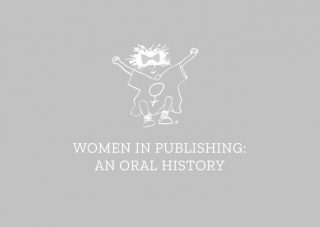11 Gail Rebuck discusses the power of the WiP network

Transcript:
I realised, not so much about sexism, because in the early days I didn’t experience any that I can recall, but I certainly wanted to network and there was no network for women. It was a man’s game. Women were perfectly good editors and publicists, but all the managing directors were men, and so there was this sense that I was in an industry that had a lot of very interesting and intelligent women in it, but they were not in positions of power. Not ultimate power at least. So if you wanted to network there wasn’t an opportunity, and if you wanted to get on in the profession, there was no route, there was no pathway that I could see for women. So when I heard about Women in Publishing and that they were going to meet in a pub to discuss publishing matters, I thought it was a wonderful opportunity, because I was new to the industry still, I didn’t know all the agents and I thought it was a chance to meet a whole load of the people from whom I might buy books.
What did you perceive would be the value of having a network?
Well the network was the basis upon which you discovered books, and were able to acquire them. I mean ’twas ever thus. It’s like that today and in those days it was even more diverse because you bought from hardcover publishers. So you’d have to get to know the rights directors of the hardcover publishers. If you really wanted to know what was going on you had to get to know the editors too because they knew about things before the rights directors, and you had to get to know the agents in case you wanted to commission an original work in paperback.
So there were lots and lots of hardcover publishers, so if you were going to have the most interesting and diverse paperback list you had to get to know an awful lot of people and keep in touch with them. They had to like you, number one. They had to trust you. We were a start-up therefore why should they sell to us as opposed to someone else, apart from if we paid more money than anybody else, which clearly I did with ‘Fat is a Feminist Issue’, but subsequent to that we had to prove that we were worthy of being sold to .
We weren’t the only game in town. There were lots of paperback imprints not least Penguin, Fontana and we were the new guys on the block – and without any track record. So, to be able to plug into a network and convince people that you were serious and that they could be confident that in selling you a book, it was in good hands, was enormously important. And I knew virtually nobody.




No Comments
Add a comment about this page